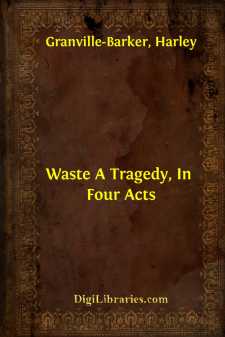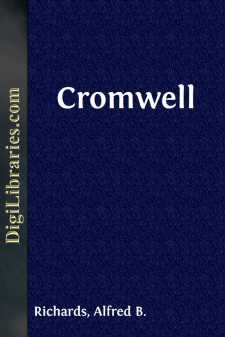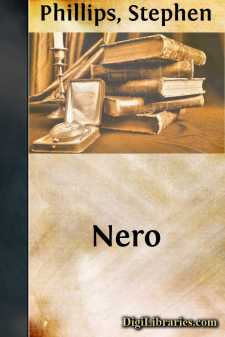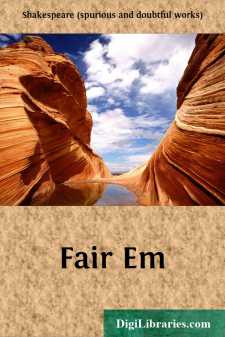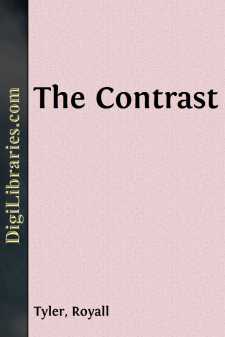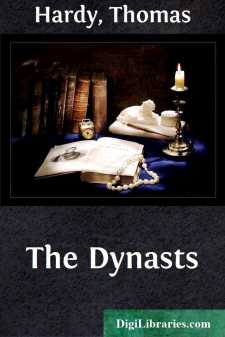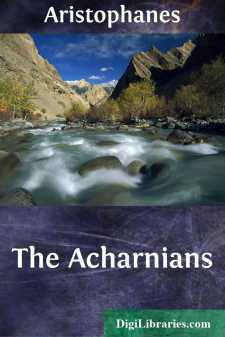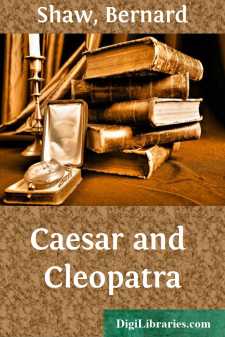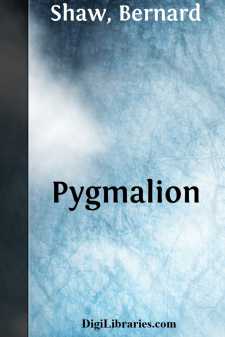Drama Books
Sort by:
WASTE At Shapters, George Farrant's house in Hertfordshire. Ten o'clock on a Sunday evening in summer. Facing you at her piano by the window, from which she is protected by a little screen, sits Mrs. Farrant; a woman of the interesting age, clear-eyed and all her face serene, except for a little pucker of the brows which shows a puzzled mind upon some important matters. To become almost an...
more...
ACT I. SCENE I. [1st Cut.] [2nd Grooves.] A Lane near a Village. Afternoon. Enter ARTHUR WALTON and WILLIAM, R.S.E. Arthur. Give me your arm, my feet tread heavily;The sameness of this scene doth pierce my heartWith thronging recollections of the past.There is nought chang'd—and what a world of care,Of sorrow, passion, pleasure have I known,Since but a natural part of this was I,Whose voice is...
more...
by:
Stephen Phillips
ACT I SCENE.—The scene is in the Great Hall in the Palace of the Caesars. At the back are steps leading to a platform with balustrade opening on the air, and beyond, a view of the city. [On the right of the stage is a cedarn couch on which CLAUDIUS is uneasily sleeping. On the right is a door communicating with the inner apartments. On the left a door communicating with the outer halls. [XENOPHON is...
more...
by:
Jethro Bithell
THE FIRST ACT One of the city gates of Pekin. Over the gate, planted on iron poles, a row of severed heads with shaven crowns and Turkish tufts. TIME: Shortly after sunrise. When the curtain rises the gate is closed. From within the roll of drums and military commands. BRIGELLA. (Behind the scenes.) Halt! Present arms! TRUFFALDINO. (Behind the scenes.) Halt! Slope swords! Open the gate! At ease! Quick...
more...
ACT I. [Enter William the Conqueror; Marques Lubeck, with a picture;Mountney; Manville; Valingford; and Duke Dirot.] MARQUES.What means fair Britain's mighty ConquerorSo suddenly to cast away his staff,And all in passion to forsake the tylt? D. DIROT.My Lord, this triumph we solemnise hereIs of mere love to your increasing joys,Only expecting cheerful looks for all;What sudden pangs than moves...
more...
by:
Royall Tyler
THE 'Contrast' was the first American play ever performed in public by a company of professional actors. Several plays by native authors had been previously published, the more noteworthy being the 'Prince of Parthia,' a tragedy by Thomas Godfrey of Philadelphia, which was probably written, and was offered to Hallam's company in 1759 (but not produced), and was printed in 1765,...
more...
by:
Thomas Hardy
The Spectacle here presented in the likeness of a Drama is concerned with the Great Historical Calamity, or Clash of Peoples, artificially brought about some hundred years ago. The choice of such a subject was mainly due to three accidents of locality. It chanced that the writer was familiar with a part of England that lay within hail of the watering-place in which King George the Third had his...
more...
by:
Aristophanes
INTRODUCTION This is the first of the series of three Comedies—'The Acharnians,' 'Peace' and 'Lysistrata'—produced at intervals of years, the sixth, tenth and twenty-first of the Peloponnesian War, and impressing on the Athenian people the miseries and disasters due to it and to the scoundrels who by their selfish and reckless policy had provoked it, the consequent...
more...
by:
Bernard Shaw
ACT I An October night on the Syrian border of Egypt towards the end of the XXXIII Dynasty, in the year 706 by Roman computation, afterwards reckoned by Christian computation as 48 B.C. A great radiance of silver fire, the dawn of a moonlit night, is rising in the east. The stars and the cloudless sky are our own contemporaries, nineteen and a half centuries younger than we know them; but you would not...
more...
by:
Bernard Shaw
As will be seen later on, Pygmalion needs, not a preface, but a sequel, which I have supplied in its due place. The English have no respect for their language, and will not teach their children to speak it. They spell it so abominably that no man can teach himself what it sounds like. It is impossible for an Englishman to open his mouth without making some other Englishman hate or despise him. German...
more...


